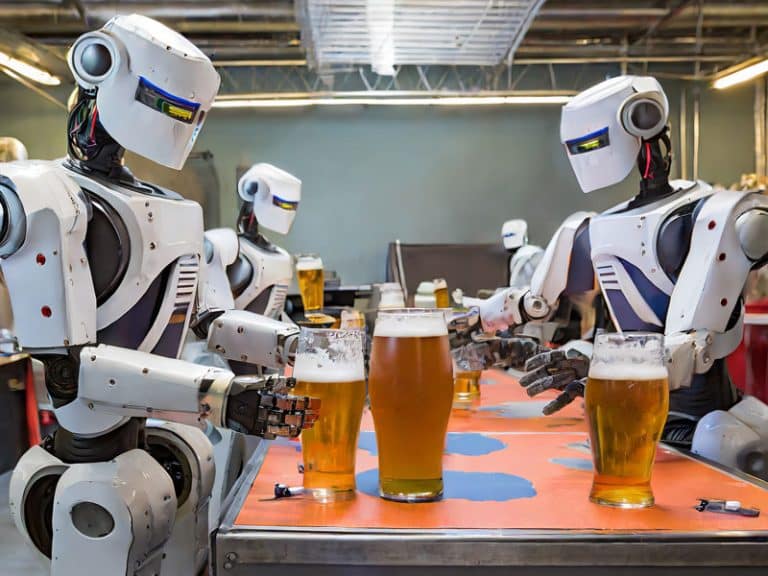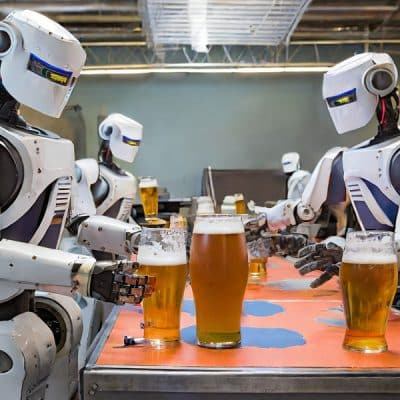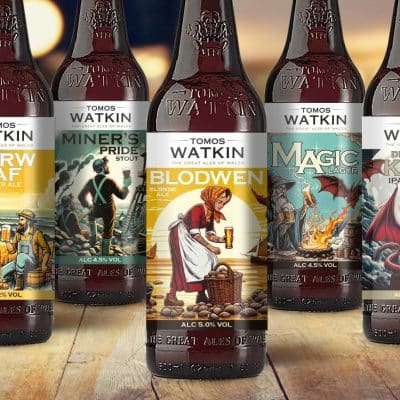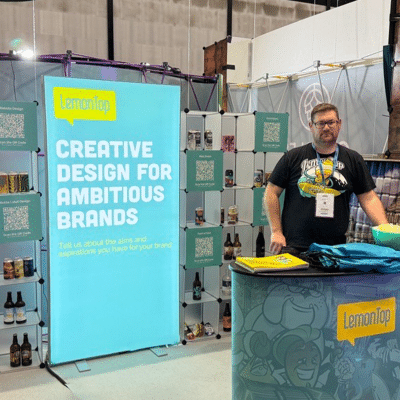As the craft beer industry continues to explode in popularity, so does the demand for competitions that showcase the best brews out there. But what if we told you that AI beer judging will change the game for beer-judging competitions? That’s right – AI is raising the bar and taking the beer industry by storm.
With AI-powered sensory analysis tools, judges now have access to a more objective and consistent way to evaluate beers. This technology can analyse factors such as aroma, flavour, and mouthfeel, and provide real-time data to help judges make more informed decisions.
Not only does this level the playing field for smaller breweries, but it also ensures that the judging process is free from human bias. And with the ability to process large amounts of data quickly and accurately, AI is helping to make beer judging competitions more efficient than ever before.
So, raise a glass to the future of beer competitions – powered by AI.
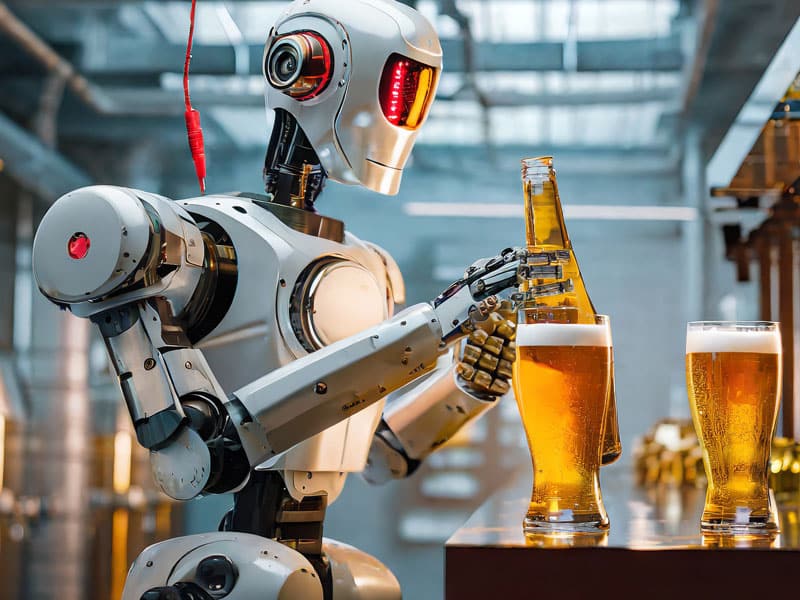
Limitations of the traditional process
Beer judging competitions have long relied on a traditional process that involves a panel of judges evaluating beers based on various criteria. These criteria often include appearance, aroma, flavour, mouthfeel, and overall impression. Judges taste the beers blindly, without knowing the brewery or brand, to ensure a fair evaluation.
The traditional process, while effective, has its limitations. It heavily relies on the subjective opinions of judges, which can introduce bias and inconsistency. Different judges may have different preferences, leading to variations in scoring. Additionally, human judges can only evaluate a limited number of beers in a given time, making it difficult to handle large competitions.
The role of AI in beer judging competitions
Enter artificial intelligence. AI-powered sensory analysis tools are revolutionizing the beer-judging landscape. These tools use machine learning algorithms to analyse various sensory attributes of beers, providing objective and data-driven evaluations. By training the AI models with a large dataset of beer profiles, the tools can identify patterns and make predictions about flavour profiles and quality.
With AI, judges have access to a new level of accuracy and consistency in evaluating beers. The technology can detect subtle differences in aroma, flavour, and mouthfeel that human senses may overlook. This not only ensures fair evaluations but also helps judges discover hidden gems among the vast array of craft beers.

How AI is revolutionising beer judging criteria
One of the most significant impacts of AI in beer judging competitions is the revolutionized beer judging criteria. Traditional criteria, while valuable, can be subjective and open to interpretation. AI introduces a more standardized approach by quantifying sensory attributes.
AI-powered tools can analyse aroma compounds, flavour profiles, and mouthfeel characteristics in a more objective manner. By breaking down these attributes into measurable components, judges can make more informed decisions based on data-driven insights. This shift in judging criteria allows for a more consistent evaluation process across different competitions.
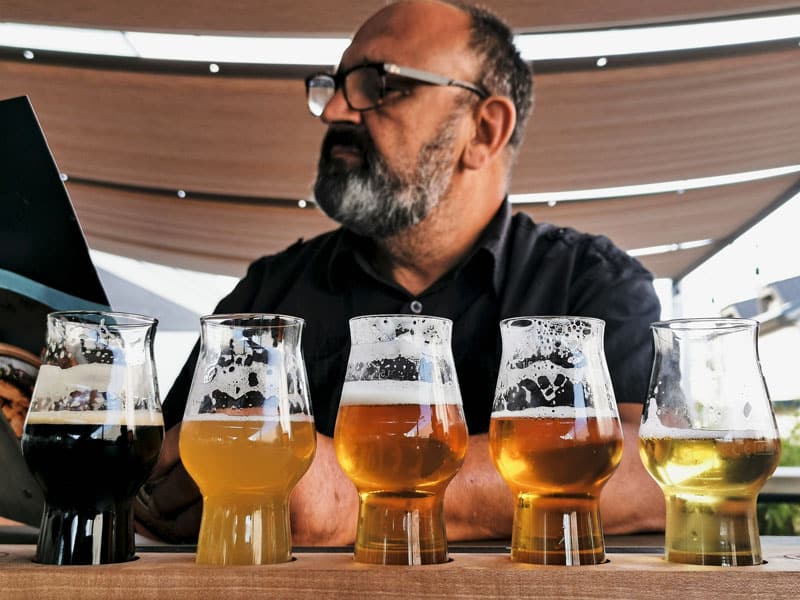
Benefits of using AI in beer judging competitions
The use of AI in beer judging competitions brings forth numerous benefits for both judges and breweries. Firstly, AI-powered sensory analysis tools provide judges with a more efficient and accurate way to evaluate beers. The technology can process large amounts of data quickly, enabling judges to assess a larger number of beers in a shorter period. This not only saves time but also ensures that no beer goes unnoticed or under-evaluated.
Additionally, AI helps level the playing field for smaller breweries. In traditional competitions, well-known and established breweries often have an advantage due to their reputation. With AI, the focus shifts to the quality and characteristics of the beer itself, allowing smaller breweries to compete on an equal footing. This encourages innovation and diversity within the craft beer industry.
Furthermore, AI eliminates human bias from the judging process. Judges may have personal preferences or unconscious biases that can influence their evaluations. AI, on the other hand, evaluates beers purely based on data and sensory attributes, ensuring a fair and objective assessment. This promotes transparency and integrity in beer competitions.
Challenges and concerns of implementing AI in beer judging
While AI brings significant advancements to beer judging competitions, there are also challenges and concerns that need to be addressed. One concern is the reliance on AI models and algorithms. These models need to be continuously trained and updated to ensure accurate predictions and evaluations. The quality of the data used for training is crucial, as any biases or inaccuracies in the dataset can affect the AI’s performance.
Another challenge is the potential resistance from traditionalists in the beer community. Some may argue that AI removes the human element and personal touch from the judging process. However, it’s important to emphasize that AI complements human judgment rather than replaces it. Judges still play a crucial role in interpreting AI-generated data and making final decisions.
Privacy and data security are also concerns in implementing AI in beer judging competitions. The collection and analysis of sensory data raises questions about how this information is stored, protected, and used. Safeguarding the privacy of both breweries and consumers is paramount to ensure trust in the AI-powered judging process.
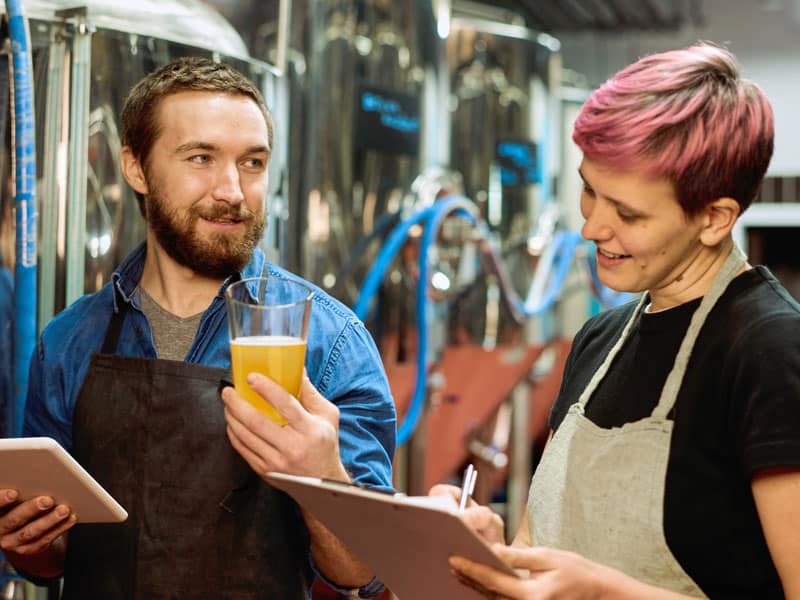
Examples of successful AI-powered beer judging competitions
Several beer competitions have already embraced AI and achieved remarkable success. One notable example is the “AI Beer Challenge,” where AI-powered sensory analysis tools were used to evaluate beers from breweries worldwide. The competition saw a significant increase in the number of participating breweries and provided judges with valuable insights for selecting winners. The use of AI not only streamlined the judging process but also generated excitement and buzz within the beer community.
Another example is the “AI Brew Fest,” a beer festival that incorporated AI-powered beer judging. Attendees had the opportunity to taste a wide variety of beers while AI tools provided real-time recommendations based on their preferences. This personalized experience enhanced the festival-goers’ enjoyment and helped breweries gain valuable feedback to improve their products.
The future of AI in beer judging competitions
The future of AI in beer judging competitions is promising. As technology continues to advance, AI-powered sensory analysis tools will become even more sophisticated and accurate. We can expect to see further integration of AI in beer competitions, with enhanced capabilities in evaluating new and experimental beer styles.
Additionally, AI may play a role in predicting consumer preferences and trends. By analysing large datasets of consumer feedback and beer ratings, AI can identify patterns and make predictions about which beers are likely to be popular in the future. This insight can help breweries tailor their offerings to meet consumer demand and stay ahead of the competition.
In conclusion, AI is revolutionising beer judging competitions by providing judges with objective and data-driven evaluations. This technology levels the playing field for breweries, ensures a more efficient judging process, and eliminates human bias. While there are challenges and concerns to address, the benefits of AI in beer competitions far outweigh the drawbacks. So, let’s raise a glass to the future of beer judging – powered by AI.
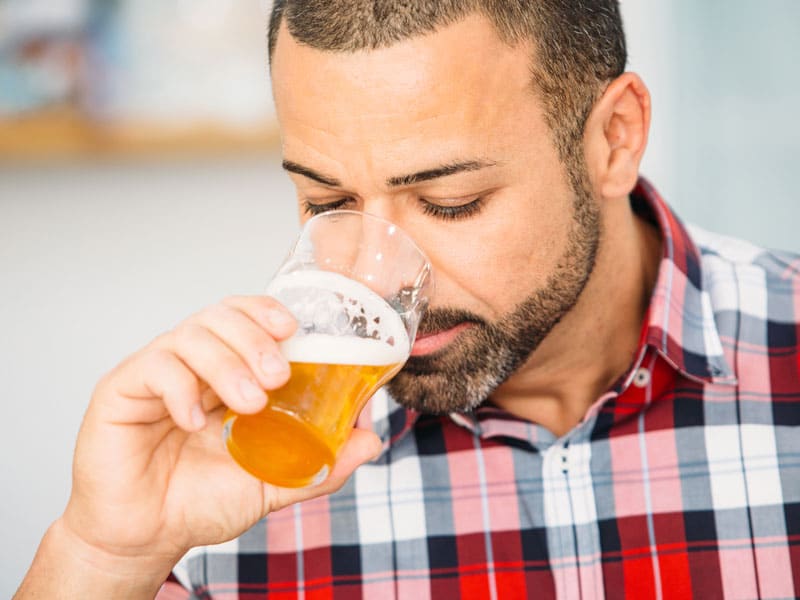
Conclusion: Embracing the future of beer judging with AI
In conclusion, the integration of artificial intelligence in beer judging competitions is transforming the industry in remarkable ways. AI-powered sensory analysis tools provide judges with objective evaluations based on quantifiable data, ensuring fairness, consistency, and efficiency in the judging process. This technology also enables smaller breweries to compete on an equal footing, encourages innovation, and eradicates human bias.
While challenges and concerns exist, such as the continuous training of AI models and ensuring data privacy, the benefits of AI in beer competitions are undeniable. The future holds even greater potential for AI-powered beer judging, with advancements in technology and the ability to predict consumer preferences and trends.
So, let’s raise our glasses to the future of beer judging – a future powered by AI, where the best brews are recognized and celebrated with the utmost accuracy and fairness. Cheers to the exciting times ahead in the craft beer industry!
Fortunately for now beer judging is left to industry professionals such as the Brewing Awards – International Brewing & Cider Awards.
AI Robot judging images created using Adobe Firefly.
